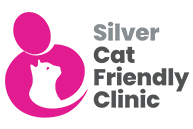Slugs and Snails! Does your dog eat them? If the answer is yes then your dog could be at risk of lungworm.
The slugs and snails you find in your garden carry a parasite called Lungworm. This parasite could pose a serious health risk to your dog and it maybe lurking in your own back garden!
If your dog becomes infected after eating a slug or snail then the parasite can pose a real threat to their health and it could potentially be fatal.
Here’s some advice to help you keep your dog safe.
Dog’s often don’t intend to eat the slug or snail – when playing in the garden or when out on a walk, dogs may chew on a toy or stick which has a snail or slug on it or drink from a puddle of water containing the creatures.
Your pet doesn’t have to eat an entire slug or snail – research shows that the parasites larvae can be found in the slime produced by the snail or slug.
If you dog does contract Lungworm then treatment is possible. However as always prevention is better than cure (lungs don't like worms living in them!) by protecting your dog with an easy monthly treatment.
What is Lungworm?
Lungworm, or Angiostrongylus vasorum, as its scientifically known is a parasite which can be carried by dogs, foxes, and other wild canids. Historically only found in Europe, in recent years it has spread so much, it is now considered an endemic in much of the UK.
How do dogs become infected by Lungworm?
Slugs and Snails that are infected carry the Lungworm larvae. It can be passed on to dogs if the accidentally or intentionally eat them in the garden, or out and about on walks. This can happen while mooching through the undergrowth, drinking from puddles, or playing with toys in the garden that little slugs or snails have stuck to. The larvae have even been found in their slime.
Once ingested these larvae migrate from inside the digestive tract into the blood stream and then travel round the body looking for a home to develop into adult worms. Classically this is the lung tissue but they can set up anywhere - even in the brain!
Once a dog is infected and the adults have developed and start reproducing, they will pass lungworm larvae back through their faeces. Then any slugs and snails that come into contact with the faeces may become infected with the parasite. So it’s a bit of a circle!
What are the risks of Lungworm to my pet?
Lungworm signs are similar to other illnesses, so it’s important to consult a veterinary surgeon immediately if your pet displays any of these signs:
- Breathing difficulties - including a cough
- Changes in behaviour -depression, lethargy or seizures
- General sickness – weight loss, poor appetite, vomiting, or diarrhoea
- Poor blood clotting – excessive bleeding from minor wounds, nose bleeds, paleness in gums and eyes (anaemia)
Dogs can show one or a combination of symptoms. All of these signs can be caused by other diseases, which makes lungworm tricky to diagnose. If left untreated the parasite can be fatal, so it is extremely important to get your dog checked by a vet if you have any concerns.
How can you prevent your dog from getting lungworm?
If spotted early many dogs once treated make a full recovery. However, this parasite can be fatal in dogs. The best way to ensure your dog is protected is to regularly use a preventative product. Not all wormers are effective against lungworm, so check with your vet.
Lungworm prevention is given monthly – unlike other round and tapeworm treatment, where using a product every 3 months is effective.
How to stop your dog from eating snails and slugs –
You can reduce your dog’s exposure to snails and slugs by:
- Not leaving toys in the garden overnight – Tiny slugs/snails maybe on the toys and accidentally eaten.
- Wash water bowls kept outside – Slugs and snails like moisture, if you have an outdoor water bowl may be bring it in at night.
- Monitor the number of snails and slugs in the garden – If your garden is prone to lots maybe consider using a non-toxic way of controlling the population.
- Pick up your dog’s poo – If everyone picked up and bagged their dog’s poo it would help limit the spread of lungworm.
If you are concerned that your dog may be at risk or just want some advice please get in touch! As always we offer free parasite prevention appointments where we can examine your pets and design a bespoke parasite control program depending on their lifestyle!




